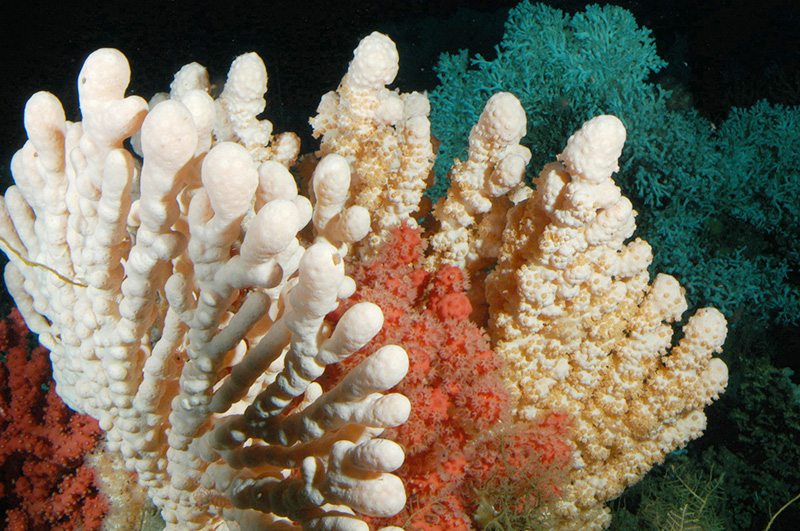BIOACID II – Consortium 3: Natural CO2-rich Reefs as Windows into the Future: Acclimatization of Marine Life to Long-Term Ocean Acidification and Consequences for Biogeochemical Cycles
Lead Proponent: Dr. Dirk de Beer (Max-Planck-Institute for Marine Microbiology, Bremen)
The acidification of the oceans due to rising carbon dioxide concentrations in the atmosphere can be predicted quite well. In contrast, its effects on biodiversity and biological functions are still difficult to foresee. For organisms with long life spans, it is difficult to estimate, if and how these organisms and their communities will adapt to the future pH decrease. This can definitely not be addressed by short-term laboratory experiments. For example, in a short-term experiment, the initial stress responses can blur possible acclimatization mechanisms. Furthermore, evaluations of evolutionary consequences by short incubations could also be very uncertain.
Consortium 3 focuses on natural reefs such as those created by tropical corals or cold-water corals or mussels. These animals depend on calcification.
If more CO2 is dissolved in sea water and thus less carbonate ions are available, reefs might be endangered or even erode – growth is only possible at high energetic costs or the more acidic water might affect the calcium carbonate structures. Oases of biodiversity and spawning or nursery areas of important fish species could be lost this way.
Three locations in the Arctic, the temperate and the tropical climate serve as natural laboratories. At CO2 sources off Papua New Guinea, mussel reefs in the North and Baltic Seas and at the cold-water coral reefs off the Norwegian coast, the scientists study microbes, micro- and macro-algae, invertebrates and the corals or the mussels themselves in connection with the carbonate chemistry of the water and nutrients. With their different living conditions, the natural reefs can be used as windows to the future. This allows to determine changes of physiology and fitness of the organisms, the composition of species, and finally of the reef ecosystem.
Measurements and long-term experiments in the laboratory accompany the observations and experiments. Population surveys provide insights into how locals use the fragile ecosystem and how they will cope with expected changes, particularly the potential economic losses.
